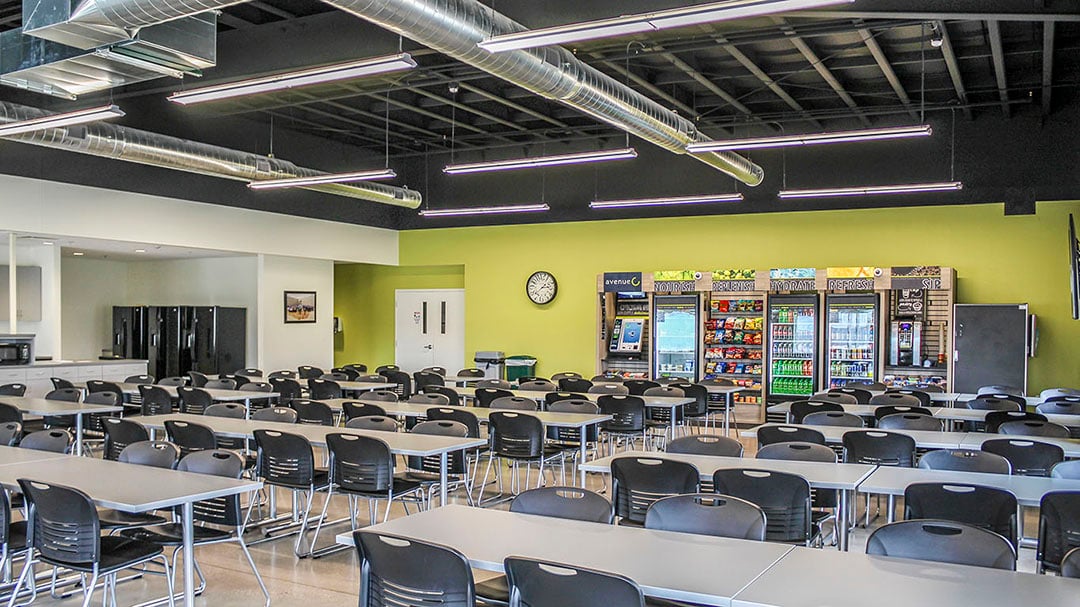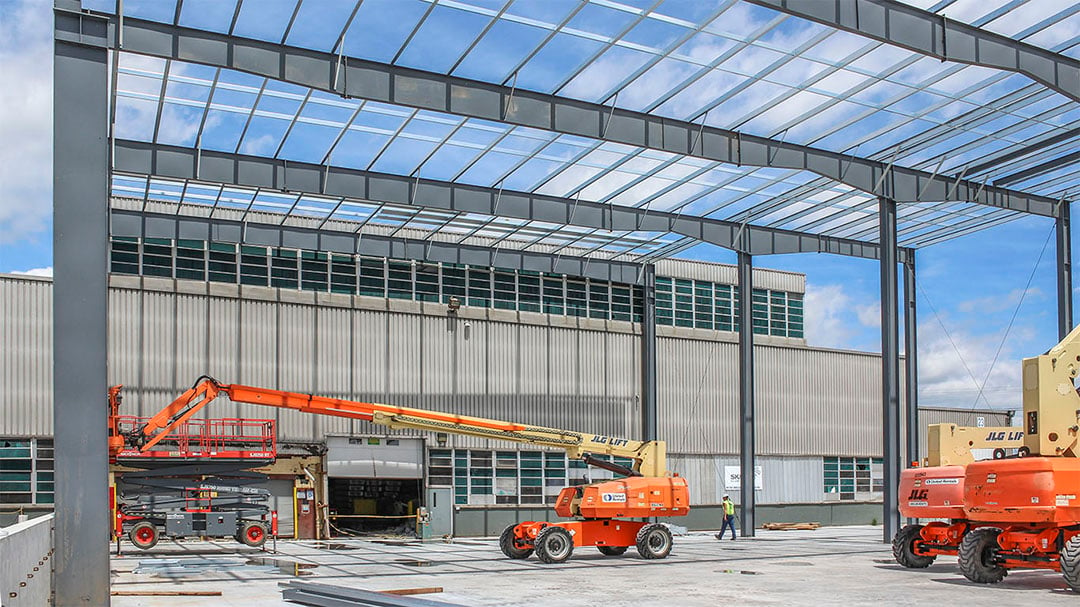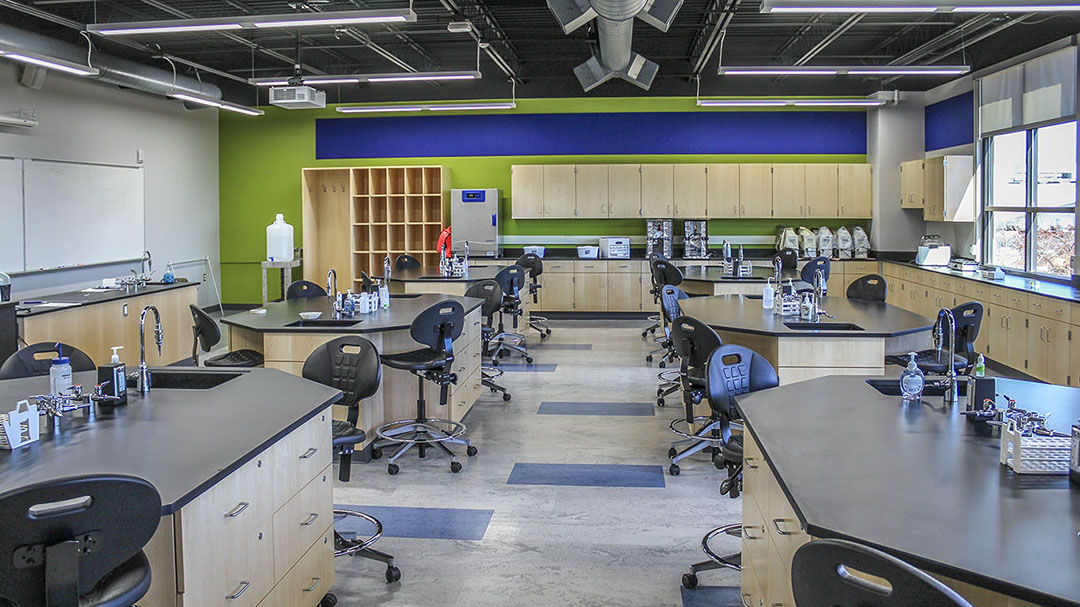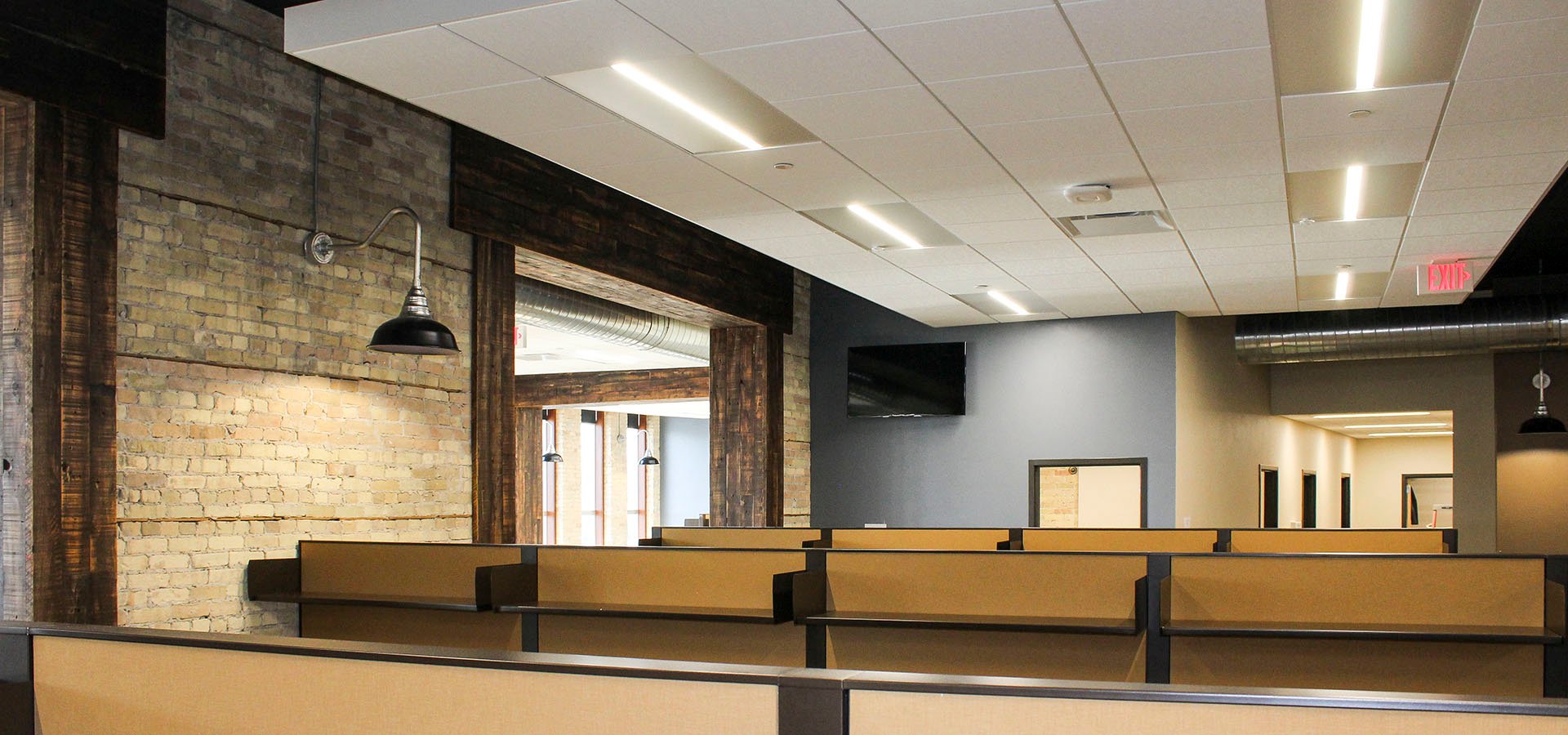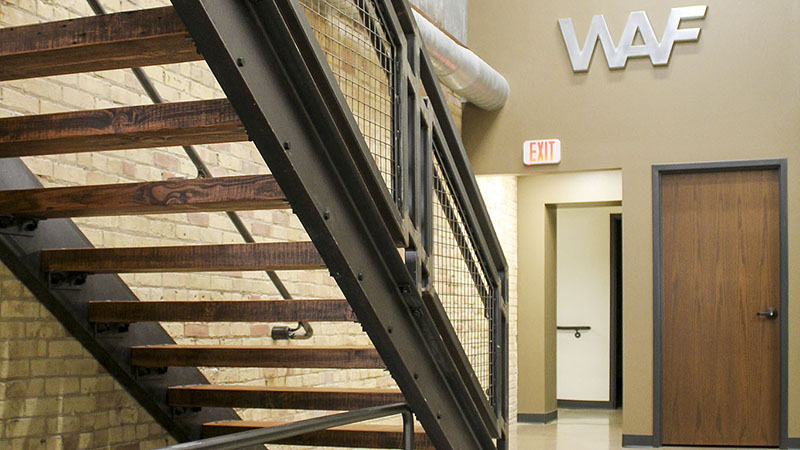
A.C.E. Projects
Building Northeast Wisconsin Since 1963
Founded in Brazil in 1911, Tramontina brought its business to the U.S. in 1986. The company has been manufacturing cookware at the Wisconsin facility since 2005. The plant is one of the facilities made available when the former Mirro Co. cookware plant shuttered its operations in 2003. “At a time when cookware manufacturers were moving operations abroad, Tramontina revived a cookware factory in Manitowoc, Wisconsin, reemploying local laborers and bringing its aluminum production to the U.S.,” notes Tramontina’s corporate website. “Reviving this plant allowed a skilled local workforce to keep their jobs and allowed the town of Manitowoc to retain its long-established identity of craftsmanship in aluminum cookware manufacturing.” Today, Tramontina manufactures more than 25 million pieces of cookware each year in the United States. In early 2017, Tramontina US Cookware invited the A.C.E. Team to make improvements and help expand the company’s Manitowoc manufacturing facility.
Read More
Our recent work for Skana Aluminum Company in Manitowoc, Wisconsin was tons of fun – literally. More than six tons, in fact. In 2017, A.C.E. Building Service was tasked with a casthouse expansion project for a new 21,500-square-foot facility. The expansion is part of a multi-phase project at Skana Aluminum initiated to replace its 1960s-era melting furnaces. The additional square footage made way for a new, state-of-the-art furnace and expanded raw material storage area. It is designed to accommodate a new furnace as one of the future stages in the overall project. Eventually, a total of three 50,000-pound capacity melt/hold/tilt furnaces and a new casting pit will replace the existing furnaces and casting pit. A Business and a Building Steeped in Tradition Skana is in a business — and a building — steeped in tradition. By the 1890s, aluminum was widely used in jewelry, everyday items, eyeglass frames, and optical instruments. Aluminum tableware was produced by the late 19th century and gradually supplanted copper and cast-iron tableware in the first decades of the 20th century. It wasn’t long before aluminum foil was invented, a mainstay of modern kitchens. Aluminum is soft and light, making an ideal material for a multitude of uses. It was soon discovered, however, that alloying it with other metals could increase its hardness while preserving the low density — a factor which led to even more uses for aluminum.
Read More
Our recent work for the University of Wisconsin-Manitowoc (UW-M) was both exhilarating and challenging. Not unlike, we imagine, the work that students perform there every semester in the laboratories, classrooms, and libraries at Founders Hall. While we weren’t racing cars, it did seem like the construction version of “The Fast and the Furious.” Getting to the finish line in the transformation of Founders Hall was important and required rigorous attention to scheduling, materials delivery — and successful navigation of several challenges. The First Renovations in Half a Century The two-story UW-M Founders Hall, located at 705 Viebahn Street in Manitowoc, had not been significantly updated since its construction in 1962. While the scope of work required $4.4 million in general contracting services, the entire project encompassed $7 million in renovations, materials, and fixtures. The project included major work: moving the library to the first floor of Founders Hall, replacing windows that were long since boarded up, and updating facilities from the art studios to the science labs. Manitowoc County contributed $5 million to the project, the State of Wisconsin contributed $1.5 million, and private donations picked up the rest of the tab.
Read More
Forefront Dermatology's newly-completed call center and office space. Forefront Dermatology, headquartered in Manitowoc, Wisconsin had a problem. They needed more space and, in the world of construction, they needed it fast. Forefront first approached a development firm in June 2016 to renovate 15,291 square feet of the historic O. Torrison & Co. building in downtown Manitowoc. In order to accommodate their rapid growth, Forefront required significant office and cubical space by January 1, 2017. Construction began in mid-September, leaving the A.C.E. team just 17 weeks to finish this multi-stage build-out.
Read More
The custom staircase was designed and built using salvaged old growth spruce stair treads. A.C.E. Building Service has had the pleasure of providing construction services to Wisconsin Aluminum Foundry (WAF) for the past 50 years. Over the years, we have expanded their foundry to increase production capacity, constructed equipment and machinery foundations, and renovated several office spaces throughout the building. Recently, we were selected to design and construct an office space within their existing manufacturing facility in Manitowoc, Wisconsin. Our goal was to create a space that transformed an existing industrial area into a modern office setting, all the while maintaining the building’s original design elements.
Read More
What's Being Built In Northeast Wisconsin?
Subscribe to see all the latest news from A.C.E. Building Service. We promise we will not flood your email inbox, and we never, ever share our contact list. We promise.
Subscribe for the Latest Construction News
About Us
A.C.E. Building Service offers design/build commercial and industrial construction services throughout Northeast Wisconsin and is the exclusive Butler Builder for the lakeshore from Sheboygan to Door County.



